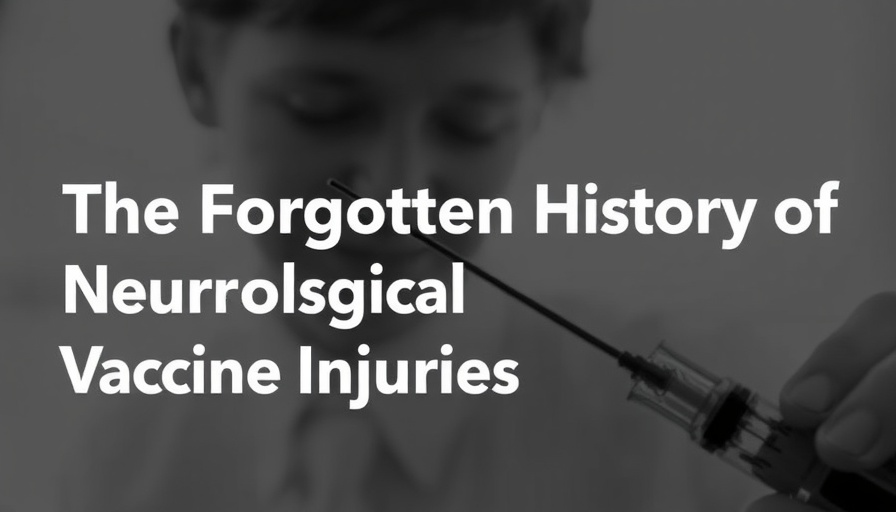
Unearthing the Hidden Past: Neurological Vaccine Injuries
Throughout history, vaccines have played a crucial role in controlling infectious diseases, but the discourse surrounding their safety has seldom addressed the integral stories of individuals impacted by neurological injuries. Many have suffered conditions that were either misattributed or overlooked altogether, leading to historical negligence in recognizing their suffering.
What Are Neurological Vaccine Injuries?
Neurological injuries resulting from vaccines can manifest as severe complications such as encephalitis, seizures, and other neurological conditions. These occurrences are rare but significant, prompting a closer look at both the science behind vaccine safety protocols and the human stories that accompany these incidents.
The Importance of Historical Context in Understanding Vaccine Safety
Historically, public health policies have been deeply intertwined with vaccine research. While vast amounts of successful vaccination campaigns have saved millions, awareness of adverse reactions has often been overshadowed by the benefits touted. Reports from the past, such as those documented during the swine flu vaccine rollout in the late 1970s, highlight instances where neurological injuries led to widespread concern and significant changes in vaccine policy.
Engaging with Personal Narratives
Understanding neurological vaccine injuries necessitates an empathetic connection to personal narratives. Each individual story sheds light on how adverse reactions can disrupt lives, underpinning the statistics with human gravitas. For instance, many parents who witnessed developmental changes in their children post-vaccination describe feelings of isolation and confusion, seeking answers amid a mainstream narrative that often dismisses their experiences.
The Balance of Risks and Benefits: A Necessary Discussion
Delving into the risks associated with neurological injuries invites a broader conversation about the benefits of vaccines. With millions vaccinated globally, the overwhelming statistical evidence continues to support effective immunization against life-threatening diseases. However, this should not sideline discussions about risks. Highlighting the need for more robust reporting and support for those affected could foster a more balanced dialogue in the public sphere.
Looking Towards a Healthier Future: Empowering Informed Decisions
Moving forward, it is vital to ensure that healthcare professionals engage in honest discussions about potential vaccine side effects. Empowering individuals with comprehensive informational resources allows for informed choices regarding vaccinations. Parents should feel willing to inquire openly about vaccine safety, influencing vaccine development and surveillance protocols to be more responsive to concerns.
The Role of Community in Sharing Knowledge
As we unfurl the complexities surrounding neurological vaccine injuries, community engagement becomes paramount. Sharing experiences can reduce stigma and foster a support network for those impacted. Platforms for open dialogue can encourage transparency between healthcare providers and patients, ultimately leading to improved vaccination strategies and policies.
Moving Forward with Mindful Living
The topic of vaccines and neurological injuries prompts us all to engage in mindful living. As it unfolds, reflecting upon both medical advancements and individual stories can illuminate the multifaceted landscape of health. With every vaccination, we are not only protecting ourselves but also contributing to a broader community narrative.
By understanding the complexities and implications of vaccine-related injuries, we can contribute to a more compassionate healthcare dialogue and policy development. In doing so, we encourage a future rooted in informed choice, empathy, and resilience.
 Add Row
Add Row  Add
Add 



Write A Comment